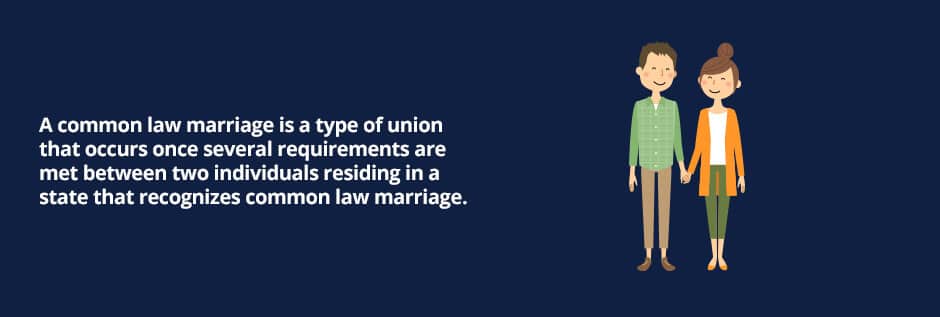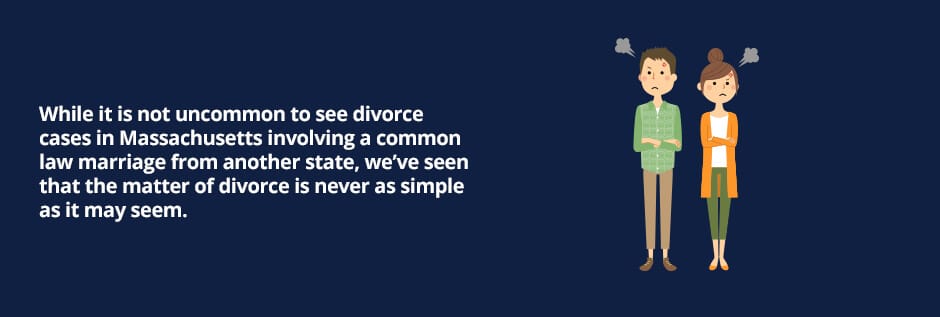Common Law Marriage & Divorce in Massachusetts

A common law marriage is a type of union that occurs once several requirements are met between two individuals residing in a state that recognizes common law marriage. Common law marriages are performed without any state formality (such as license) or a formal ceremony.

While common law marriage is not available under Massachusetts law, a common law marriage must be recognized by the state if two individuals from another state move to Massachusetts. This especially comes into play during divorce proceedings, where complications over the legality of a common law marriage can make a divorce much more complicated.
What is a Common Law Marriage?
Requirements for common law marriages vary by state law, but two people can generally become married under common law if:
- They are not married to anyone else;
- Neither party is under the age of 16;
- Both parties intend to be married;
- Both parties cohabitate for a sufficiently long period of time; and
- Both parties hold themselves out to the public and/or community as being married by, for example, referring to themselves as being married in conversation, filing joint tax returns, and generally acting in the same manner married spouses would.
In states that recognize common law marriage, once the above requirements are met, a couple may be considered married in the eyes of the law. Massachusetts does not allow citizens to become married through a common law marriage, but the state will recognize common law marriages originating from other states through the Full Faith and Credit Clause of the United States Constitution.
Common Law Divorce in Massachusetts

While it is not uncommon to see divorce cases in Massachusetts involving a common law marriage from another state, we’ve seen that the matter of divorce is never as simple as it may seem.
In Massachusetts, the length of a marriage is perhaps the most important factor to be considered by a judge when dissolving a marriage and determining the division of a couple’s assets, as well as the duration of alimony following a divorce.
Because common law marriages are founded upon a period of cohabitation, some Massachusetts couples may seek to extend the length of their legal marriage by “tacking on” a common law marriage to it.
Unless the couple resided in a state that recognized common law marriages for years prior to moving to Massachusetts, it is unlikely that a judge will recognize a common law marriage for the purpose of increasing the amount of time they were married.
Contact an Experienced Divorce Attorney
If you believe that divorce is the right option in your situation, it’s vital that you work with an experienced divorce attorney. Because common law marriages are not legally recognized in the state of Massachusetts, it may be necessary to explain to the judge why you are seeking divorce from your spouse in the first place. In these instances, a divorce attorney can help explain the laws of your previous state of residence in greater detail to ensure that your marriage is recognized by the court.
Your attorney will provide guidance and counsel on the many legal aspects of ending your common law marriage, including what to do before filing for divorce. For more information or to schedule a free consultation, contact Infinity Law Group today.
 Infinity Law Group LLC
Infinity Law Group LLC





